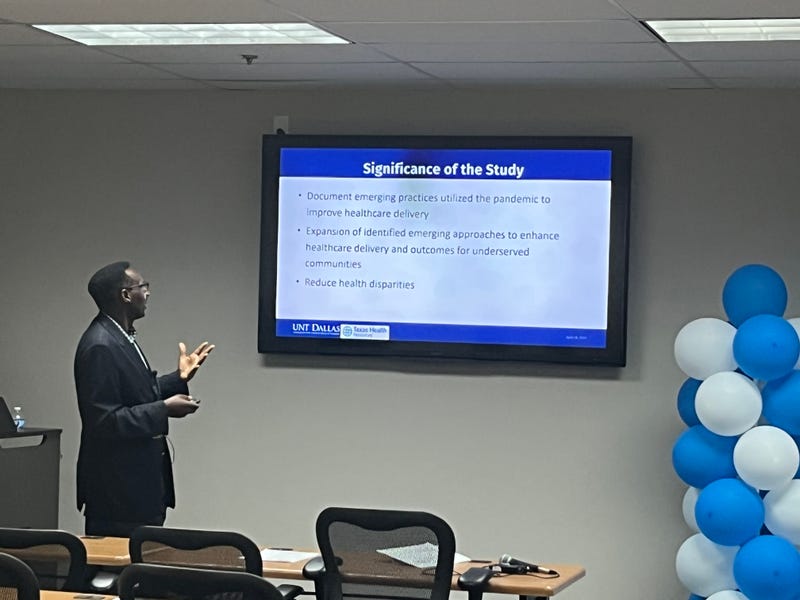
UNT Dallas is using a grant from Texas Health to study how education, medical and non-profit leaders responded to the pandemic and how they might use tools that emerged long-term.
The research project is bringing together representatives from different groups to talk about how they are reaching their communities.
"We've been very intentional about identifying our community partners," says Constance Lacy, dean of the UNT Dallas School of Behavioral Health and Human Services. "It hasn't been as difficult because UNT Dallas has relationships in the community."
Lacy says bringing different organizations together can give them a chance to compare notes on tools they used during the pandemic and find potential applications for those tools long-term.
"We want to give [Texas Health] insight about what programs are doing the work, boots on the ground, how they're doing it innovatively in new and creative ways, so they can, down the road, decide how they might want to fund some of those initiatives," Lacy says.
Among those tools is an increased use of text messaging to notify people in the community about events.
The non-profit, Brother Bill's Helping Hand, provides healthcare and educational programs in Dallas but expanded to add more food distribution during the pandemic. Operations Director Courtney Cuthbert says texting grew as an efficient option to spread the word about distribution locations.
"That was an effective way to communicate with everyone at once. We could send out a mass text message to thousands of people at one time," she says.
Cuthbert says they learned many people dealing with housing or food insecurity still have cell phones, so mass texts gave the non-profit a targeted way to reach people who might need help. She says text messages can also provide the organization with feedback about current needs and the location of people who need help.
"We're trying to also go where the needs are but still learn what are those ever-changing needs in the community," she says. "How can we meet them where they are?"
UNT Dallas' Lacy says they are also looking at how telehealth has evolved. She says more people started using telehealth during the pandemic, but that will remain a viable tool in the future.
She says UNT Dallas has retrofitted its counseling clinic lab for telehealth. Lacy says adding telehealth options can help students learn to work with patients while staying HIPAA compliant.
"We're also teaching them about the economics of having a private practice," she says. "It costs to have that equipment, so you have to build that into your budget."
Lacy says options like texting and telehealth can give medical professionals additional options to build a healthy community.
"I see it as a diamond. We may have been looking at the scope of service through one lense, but now we have various lenses we can look at how we serve our community, how do we strengthen our community?" she says.
Lacy says the research project can give different organizations a chance to come together and compare notes about which apps are working to distribute information and what tools can help them work efficiently. She says many practices now use their apps or automated text messages to remind people about checkups.
She says practices are also more likely to use digital forms for screenings. Lacy says the information gained from meetings that include doctors, veterans groups, education leaders and people running non-profits can highlight areas of the greatest need. She says that would give different groups the infrastructure to respond more quickly to a potential pandemic in the future but also improve routine healthcare in areas considered underserved.
"Healthcare is not just medical," she says. "It's in schools, communities and high-risk neighborhoods. These groups are now starting to network with each other because maybe they didn't know they were doing similar work in different zip codes. We see this as an opportunity beyond the research we're doing to sustain relationships."
LISTEN on the Audacy App
Tell your Smart Speaker to "PLAY 1080 KRLD"
Sign Up to receive our KRLD Insider Newsletter for more news

